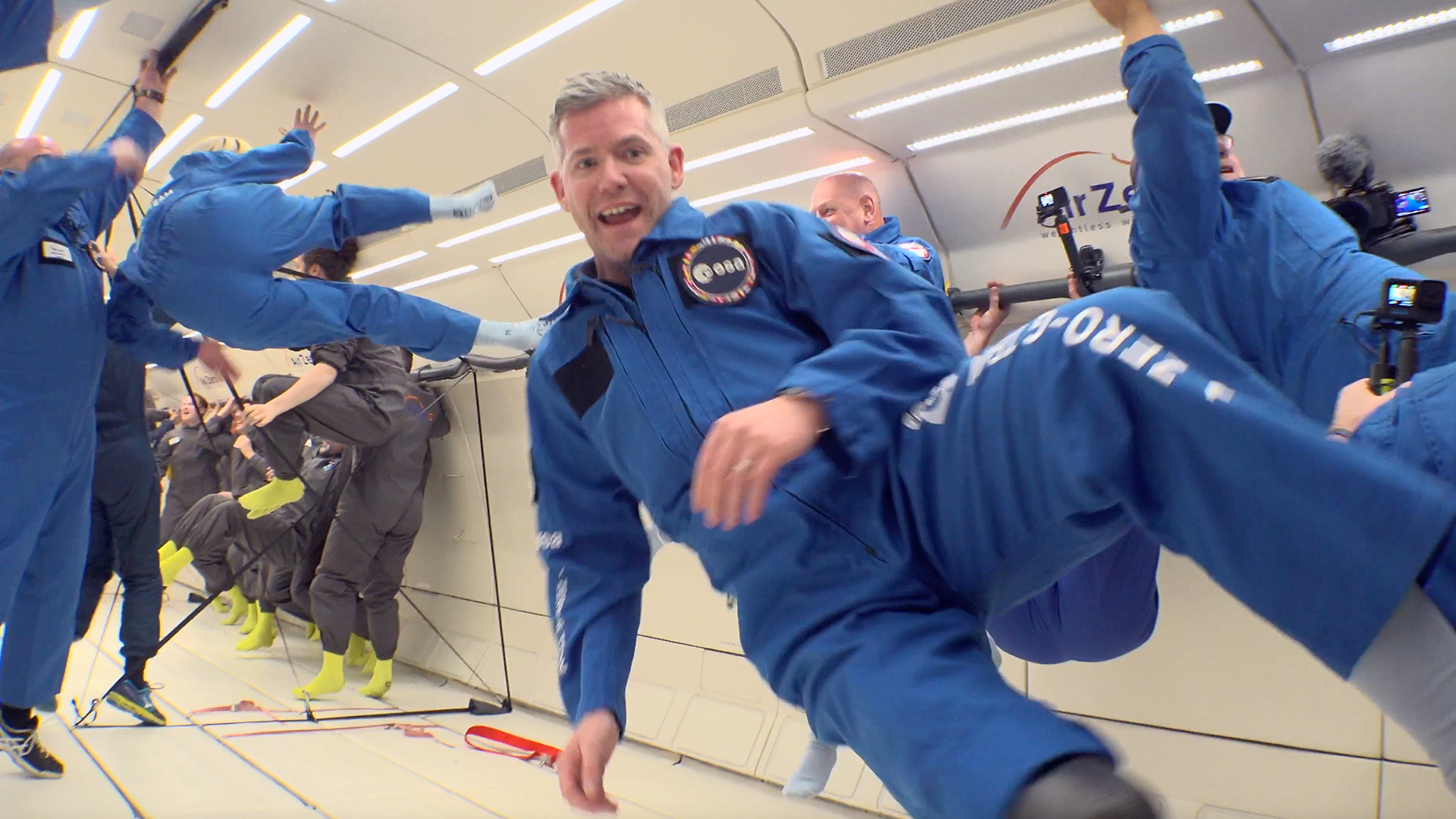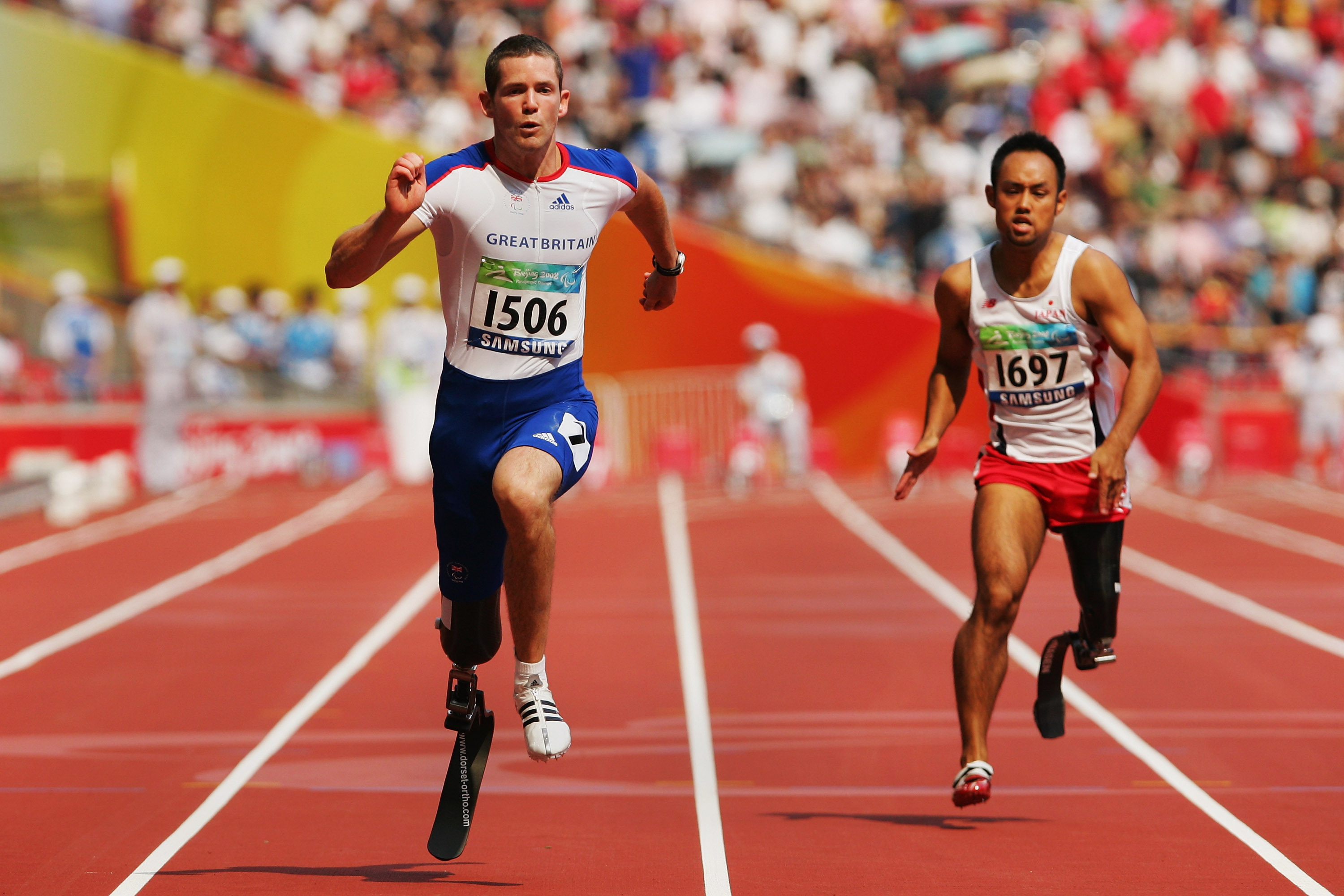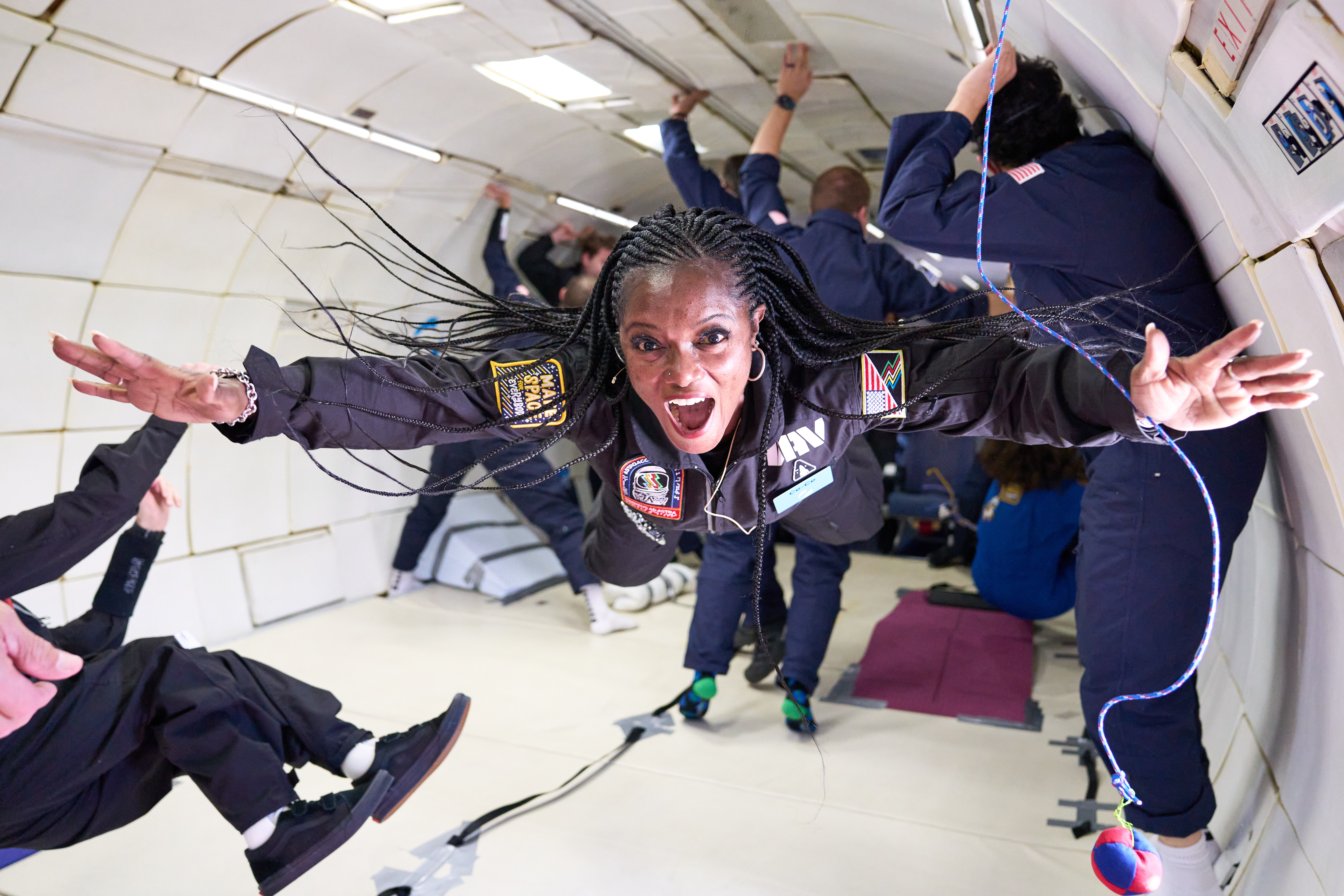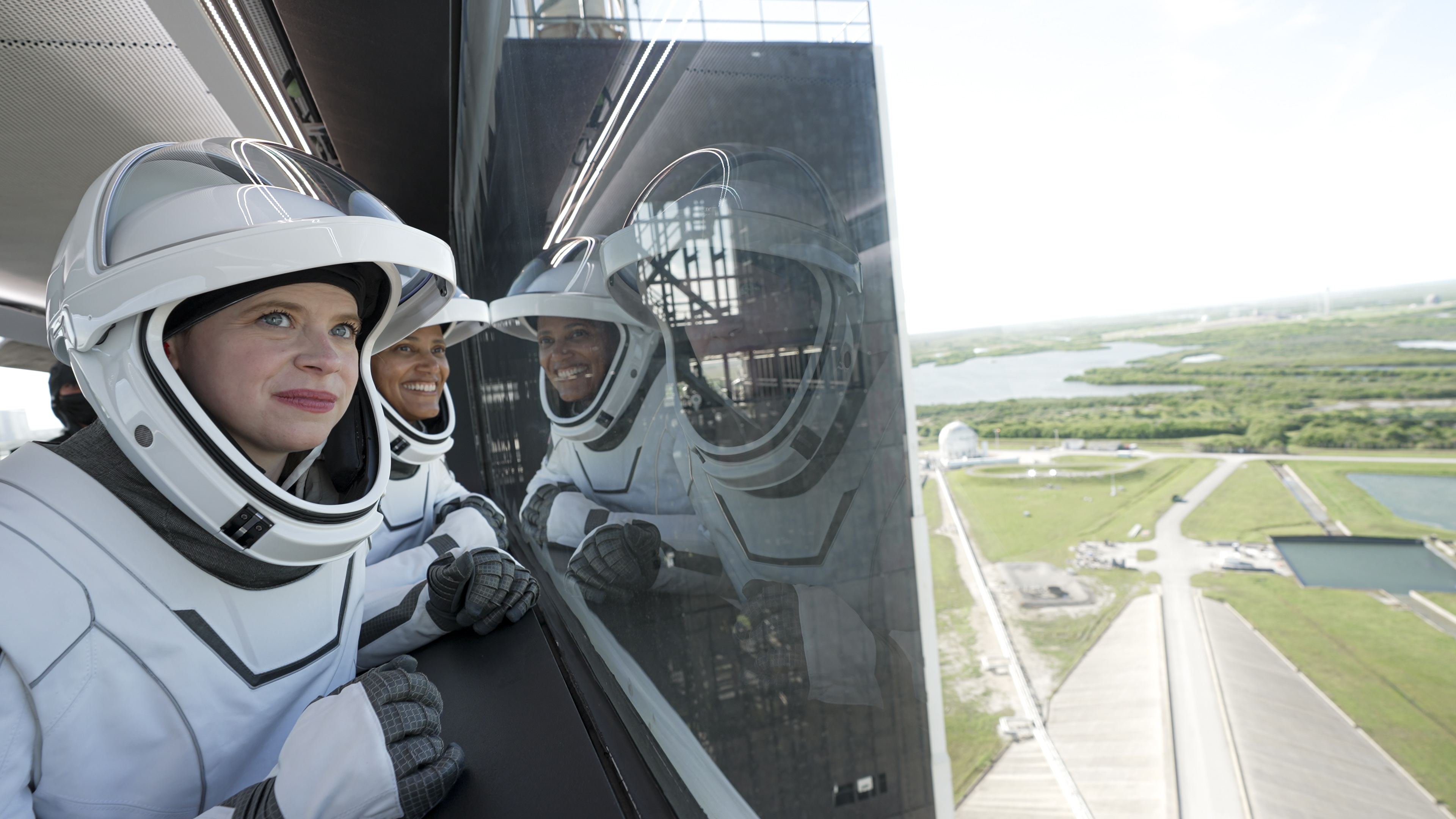
Days after the first "parastronaut" came a step closer to approval for space station missions, a new study says that space exploration's efforts to boost diversity hold valuable lessons for health professionals here on Earth.
European Space Agency (ESA) reserve astronaut John McFall, a surgeon and former Paralympic sprinter, may be considered for future International Space Station (ISS) missions following a recent feasibility analysis; the ESA-led effort found no major issues posing a mission risk should an ISS astronaut use a prosthesis. While not guaranteed for a spaceflight, McFall may be the first person with a prosthesis to board the ISS in a quarter-century of operations.
"This is a potential opportunity to send a strong message to society and humanity, and challenge the narrative that exists around surrounding people's expectations of what people with physical disabilities are capable of," McFall told reporters in a livestreamed press conference last week. (A recording was made available to Space.com from ESA.)

Inclusion is the theme picked up in a new study in the journal Communications Medicine, which was published Thursday (July 25), the day before today's (July 26) National Disability Independence Day. McFall's example, the study argues, is a moment for health care organizations to promote accessibility through initiatives such as upgrading equipment, changing training and improving selection criteria for employees.
Related: Equal access to space: New study investigates how to get more 'parastronauts' aloft
The Communications Medicine study is not directly affiliated with McFall's feasibility analysis, although one of its authors (Jennifer Ngo-Anh) used to coordinate ESA science activities that include the ISS. Ngo-Anh recently moved to ESA's directorate of commercialization, industry and competitiveness.
Lead author Fahran Asrar — a clinician and associate professor at the University of Toronto — says the team drew inspiration from ESA's parastronaut program and Hayley Arceneaux, a cancer survivor with a prosthesis who flew on the privately funded Inspiration4 mission with SpaceX in 2021.
"We're looking at how space technology, and the space sector, can actually make a positive difference for our Earth-based, let's say, challenges — whether that's public health, environmental health or other kinds of social aspects that could help our patients here," Asrar told Space.com.
McFall is a stunning example in a health sector otherwise struggling to be inclusive, Asrar said; while inclusion can always be improved in space as well, he said that other industries like health care need to catch up.
"There's a lot of research showing how individuals who have disabilities are less likely to be employed, compared with someone without a disability," he said. "The other stats and information alludes to a lot of what we call ableism, where individuals just have the assumption that, 'Oh, this individual would just not be able to do it,' or 'They might not be able to handle medical training, medical roles.'"

Asrar's study team also includes engineer and communications professional Dana Bolles, who is missing both legs, according to an interview she did with her employer: NASA. Initially inspired by the astronaut program, Bolles later picked up a degree in mechanical engineering due not only to interest, but also because she uses a wheelchair and medical equipment: "I figured having that skill and knowledge would be helpful not only in my work life but in my everyday life."
Bolles is an ambassador for the non-profit AstroAccess program, which flies people with disabilities aboard parabolic aircraft to perform scientific research. Her 2021 flight examined assistive devices for spaceflight.
One of Bolles' greatest career challenges, she said, has been people who "make assumptions about what I can't do," which can reduce opportunities for meetings or conversations. "That could be tough to overcome, depending on who that person is," she said.
Related: Zero-G flight for disability ambassadors shows space is accessible for all

Asrar's inclusion study rightly points out that spaceflight itself is inherently disabling. Despite countermeasures, all humans flying on board the ISS experience muscle weakness, fluid shifts and other body changes. If the mission persists for weeks or months, lengthy rehabilitation takes place after flight under medical supervision.
On the flip side, space's microgravity can offer greater accessibility for some disabilities, Asrar said. Perhaps, he mused, it could be possible to use the missions of McFall (should he get one), Arceneaux and others to "translate all of that experience — the technological abilities to assist in space — [to] benefit individuals with disabilities on Earth."

McFall's leg was amputated following a motorcycle accident at age 19, according to his biography. Subsequently he not only medaled as a sprinter in the Paralympics in 2008, but received many medical certifications — among them core surgical training covering general surgery, urology and trauma, and orthopedics. When required, McFall wears a prosthesis — which goes for training activities and any eventual spaceflight he may be selected for.
"I will have to wear a prosthesis at launch, which means wearing it inside the spacesuit. And that's to meet the emergence of the minimum emergency requirements at launch," McFall said, referring to evacuation procedures. "I would also have to wear a prosthesis on orbit to undertake the exercise countermeasures, to protect my body from the effects of microgravity."
The feasibility analysis covered many aspects of McFall's prosthesis, including making sure it complies with ISS exercise equipment like the treadmill and bike, and whether changes in the volume of his stump would affect how his prosthesis fits his body. So far the analysis only examined the ISS environment, but future endeavors could perhaps consider spacewalking, McFall said.
"If we can demonstrate how methodically and thoroughly we have done this study, and provide the outcomes in a very sensible, logical way, there's really a lot of strength to people being more open-minded to engaging in … studies like this in the future," McFall said. "We're really setting a precedent."
McFall is not a full-time ESA astronaut, nor has he undergone all of the agency's basic training. He instead forms part of the reserve group that the agency has for possible short-term opportunities in spaceflight, and has undergone familiarization classes. One reserve astronaut from McFall's group made it to space recently: Marcus Wandt of Sweden flew on the weeks-long Axiom Space Ax-3 private mission to the ISS earlier this year.







